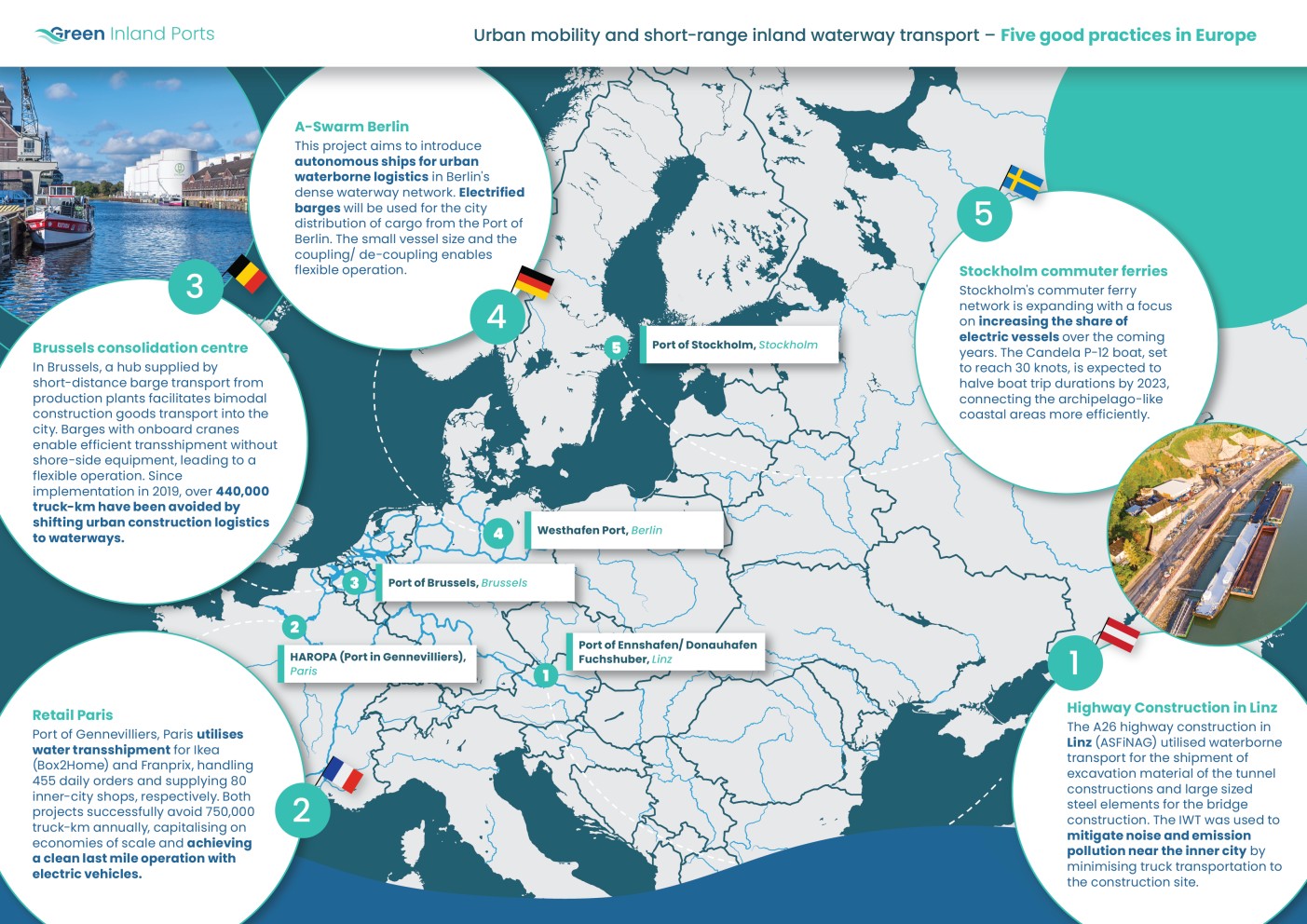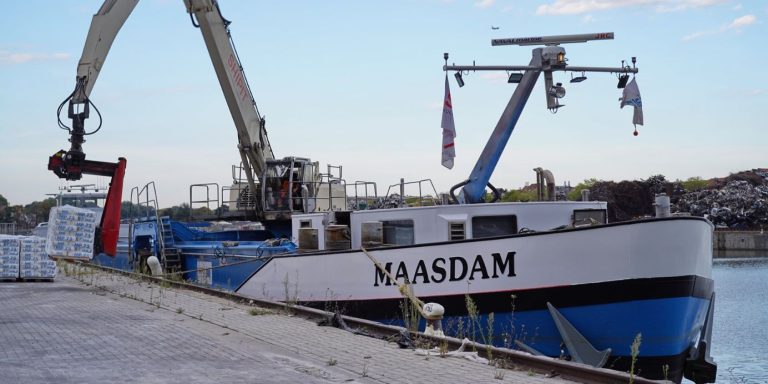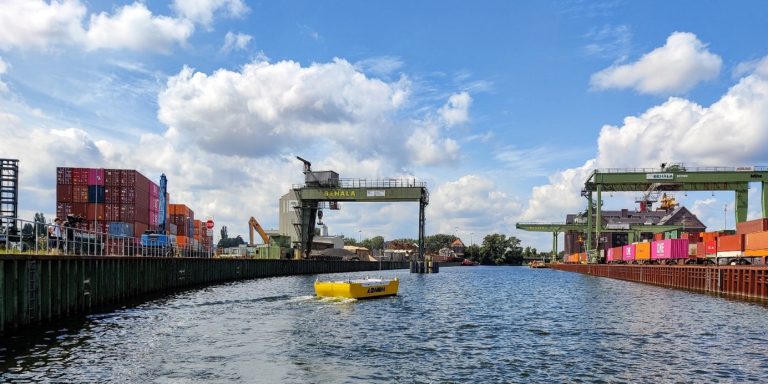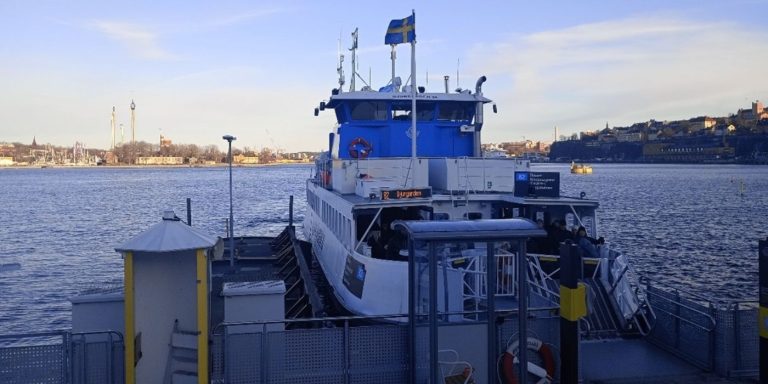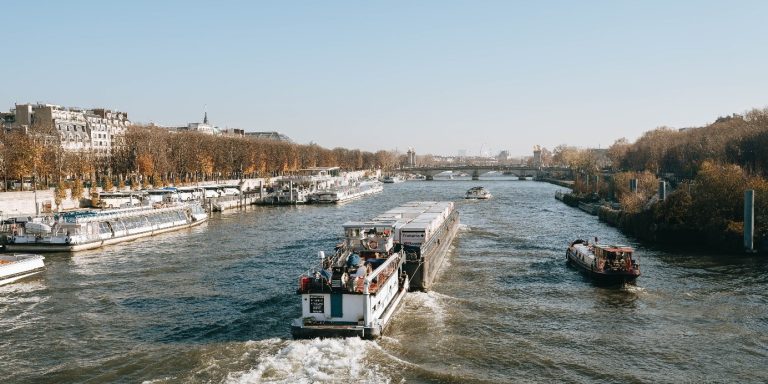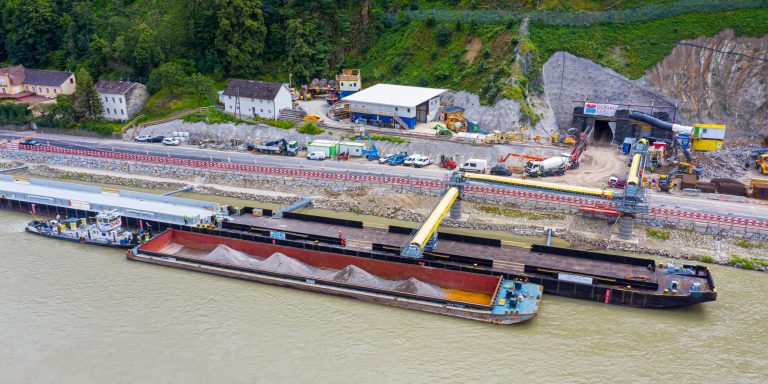Task 2
Urban mobility and short-range inland waterway transport
Inland Waterway Transport (IWT) holds untapped potential for the future of sustainable urban transport. Through our research, we will look at how IWT can contribute to the success of the EU Green Deal and create cleaner urban environments.
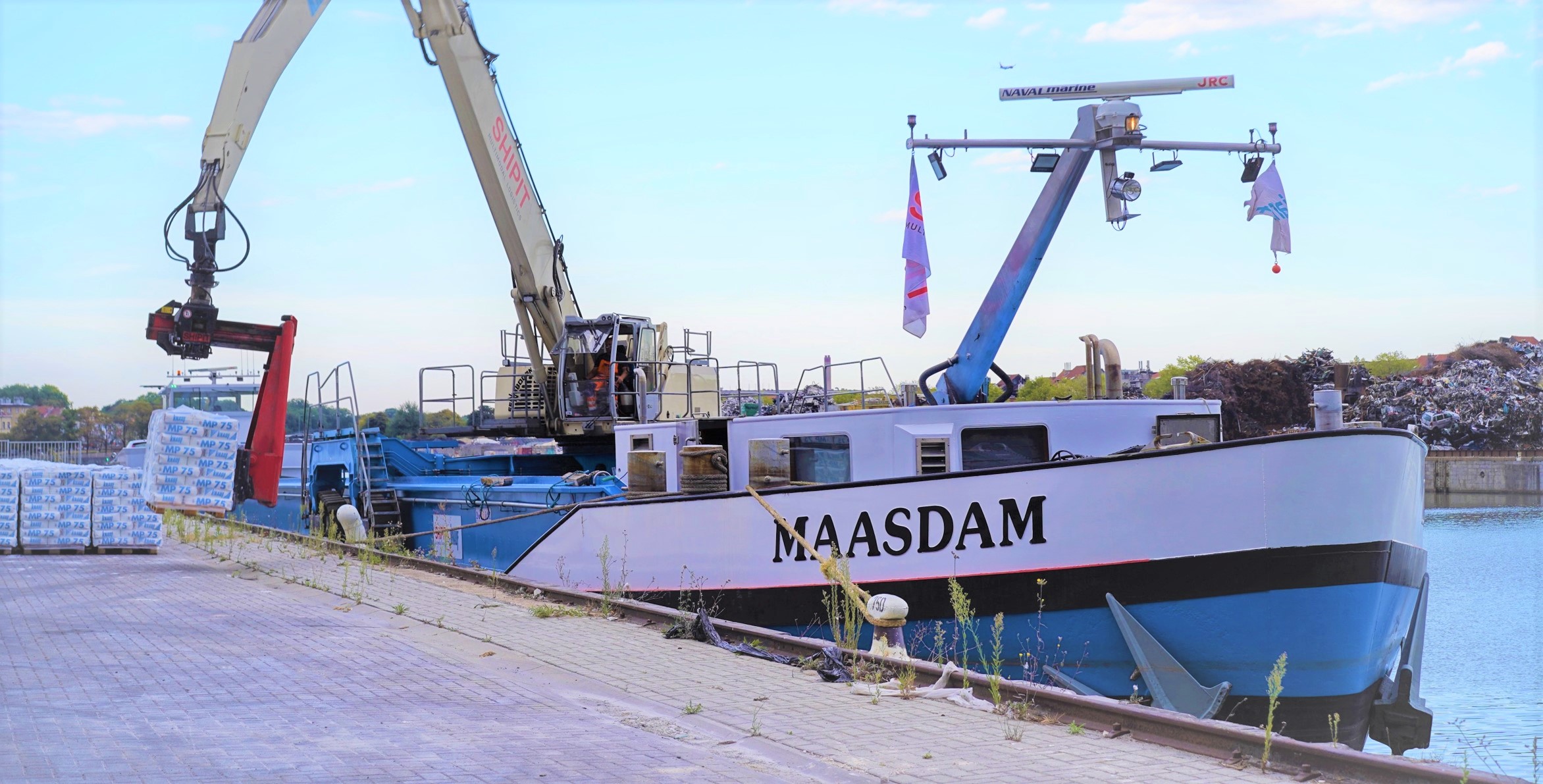
Introduction
By tackling the challenges and barriers for IWT in urban and short-range operations, both for freight and passenger transport, we exploit the untapped potential of the sector beyond its traditional markets.
To this end, we analyse 20 examples of good practices covering a range of market segments, geographic locations and river basins to identify success factors, challenges, barriers and opportunities. The selection of 20 good practice examples is spread across market segments of retail delivery, parcel delivery, waste transport, construction materials transport and urban passenger transport. Various examples come from France, the Netherlands, Germany and Hungary. There are also examples in Sweden and Austria.
The map below provides a detailed overview of the selected good practice cases and their respective locations.
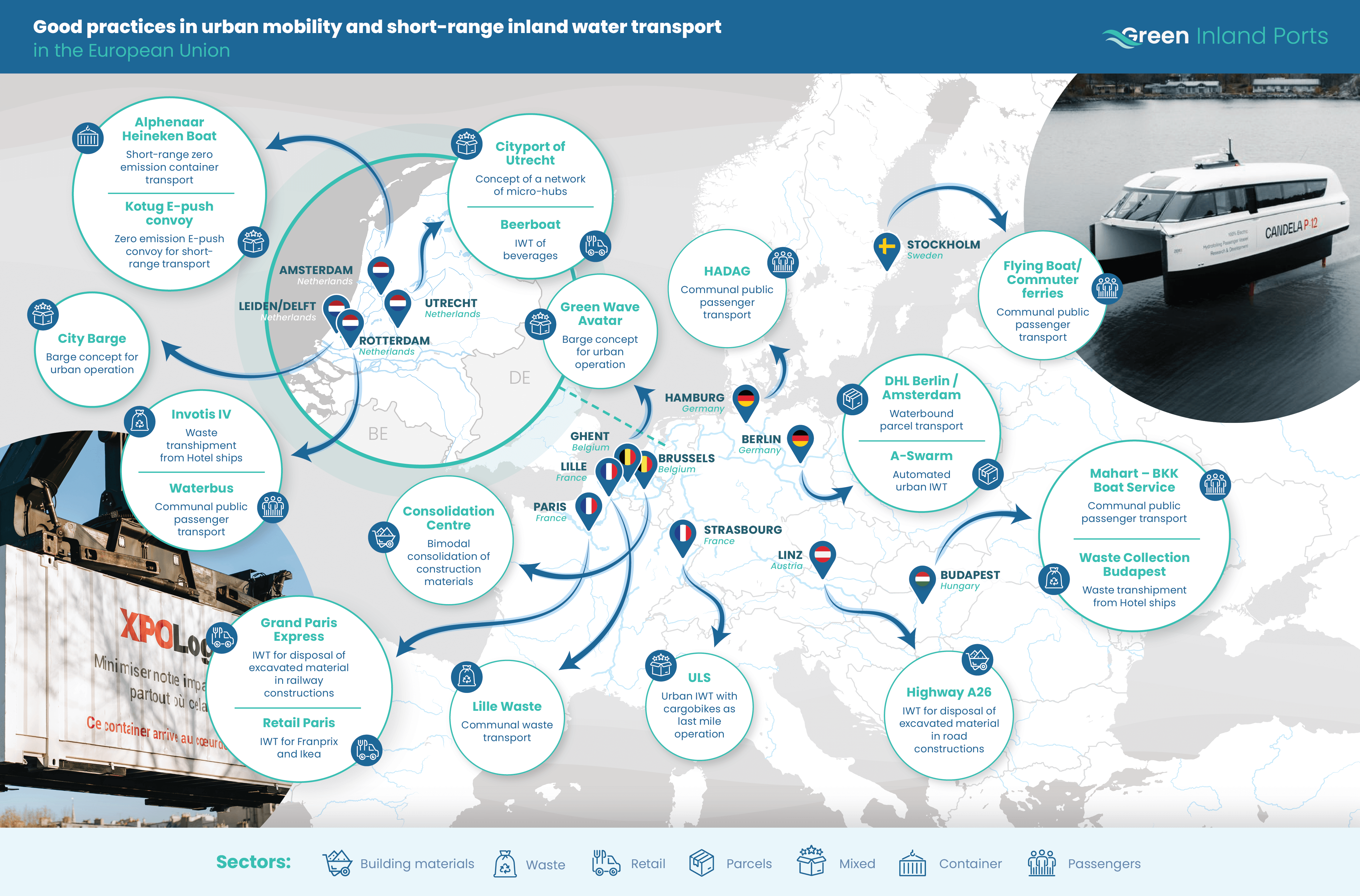
These case studies showcase success factors in urban mobility and short-range logistics to strengthen IWT in these markets. Furthermore, our case studies show how to support the set-up of new services. As part of an in-depth analysis, interviews are being conducted with case operators and other stakeholders, to gather relevant information and insights valuable for our evaluation. The roll-out potential of the good practices will be analysed based on an evaluation.
Take a look at our case studies below on short-range waterway transport and the map below which give a snapshot overview of our work. Additionally, we are pleased to showcase the spatial delineation and definition of European regions which we consider to be potential areas of possible urban or short-range IWT services.
Case studies on urban mobility and short-range inland waterway transport
Take a look at the map below to learn more about the five good practices identified under Task 2:
